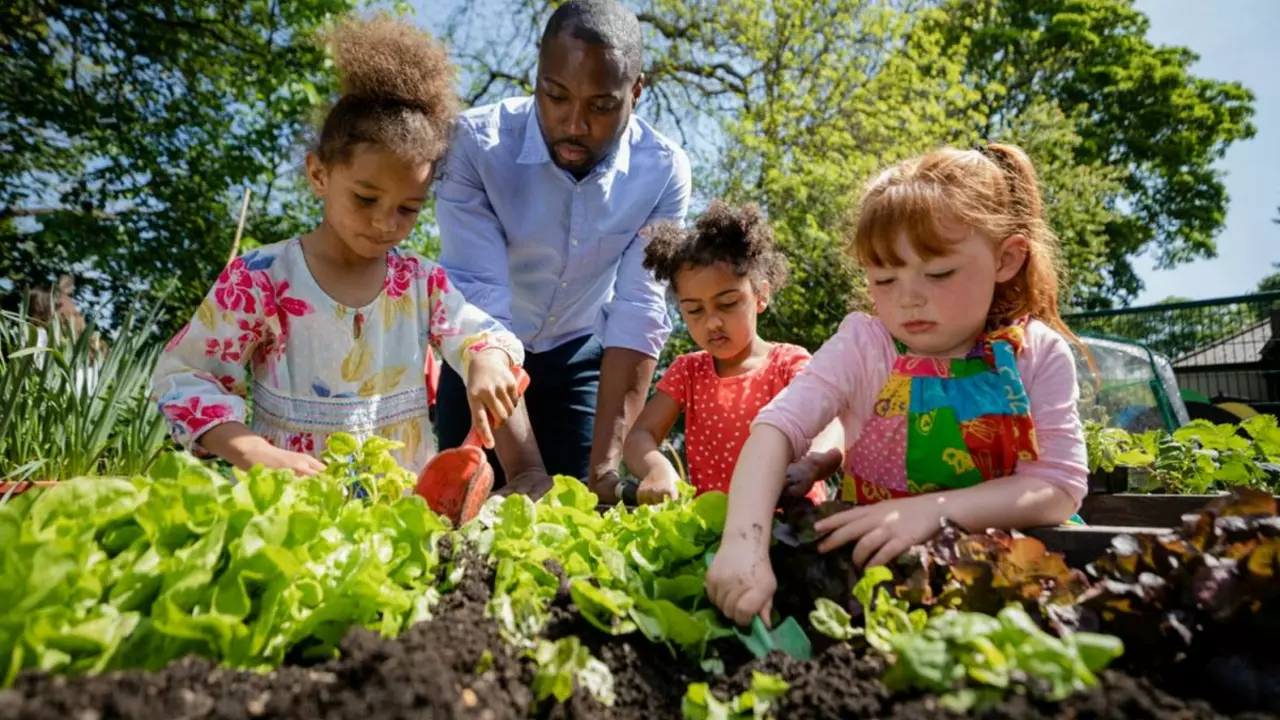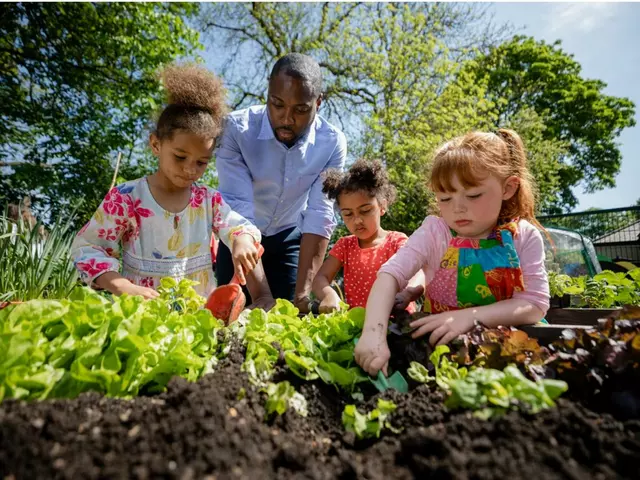

Planting the Seed: The Dawn of Educational Gardens
Do you recall an era when education revolved around textbooks, chalk-filled blackboards, and stationary desks? But times evolve. Much like how Adrianna, my significant other, transformed our conventional living space with vibrant Bohemian vibes, academic institutions are veering towards tangible, real-world learning experiences. Welcome to the realm of educational gardens. It's not just a trend but a movement that intricately intertwines food, science, and environmental awareness into the education framework.
The momentum of educational gardens is rejuvenating the educational landscape, encouraging a departure from age-old teaching paradigms. Imagine young learners marching out of classrooms, holding gardening tools, their faces illuminated with happiness. The sheer joy of digging into the soil and connecting directly with nature is unparalleled. A truth I discovered firsthand when Adrianna and I embarked on our gardening journey, albeit with our playful Shiba Inu, Chewie, amusingly uprooting some of our efforts!
Sprouting Insights: Gardens as Platforms for Experiential Education
Revisiting my juvenile days, I was a science enthusiast but often grappled with abstract chemical equations. Why? Their detachment from everyday life. Educational gardens bridge this disconnect. They serve as living classrooms, bringing to life theories like photosynthesis, pollination, and the water cycle, making them touchable and relatable.
Did anyone ever spot a potato tree? The wonderment we felt upon realizing carrots lurk beneath the soil is something school gardens recreate, transforming them into mesmerizing realms where the mysteries of food origins unravel. The essence of education gets amplified when it's hands-on. In this respect, gardens are nature's dynamic teaching aids, ensuring profound comprehension.
Cultivating Minds: Merging Education with Environmental Responsibility
Adrianna occasionally ponders why I picked blogging over the stage of comedy. Though self-deprecating humor plays a part, deep down, I believe in the power of words to germinate change. Similarly, educational gardens sow the ideals of ecological care in budding minds, shaping a generation equipped with the ethos of cherishing the earth with simple tools.
These young environmentalists begin to discern the Earth's rhythm and delicate equilibrium. They recognize the journey of their food, understanding nature's cycle of giving and taking. The delight in a child's eyes when they share a meal crafted from their cultivated produce? It's an embodiment of joy, accomplishment, and pride.
Harvesting Benefits: The School Garden’s Role in Health and Unity
One of the endearing elements of an educational garden is its diverse yield. I can still feel the pride when my bell peppers echo a mesmerizing sunset's hues. Such experiences elevate our connection to the food, turning even mundane moments into triumphant celebrations.
The metamorphosis of a humble seed to a delicious meal intrigues and can ingeniously nurture healthier dietary choices among youngsters. The charm of cultivating one's meal can even persuade the staunchest veggie skeptics to try their produce.
Reflecting on Chewie's stardom in local parks, educational gardens emerge as communal hubs. They knit together parents, educators, and local enterprises, creating a nexus of collaboration while a biodiverse oasis thrives within the school boundaries.
Without contest, the educational garden trend is a flourishing initiative. Like tendrils striving for sunlight, it stitches the intricate connections between food, science, and the environment into the fabric of our educational model. It promises dynamic outdoor learning spaces and a generation intimately tied to the land. And if ever you need help writing a thesis on this transformative movement, know that it's the perfect blend of nature, nurture, and education. So, why wait? Grab that shovel and sow a change today!

Send Comment